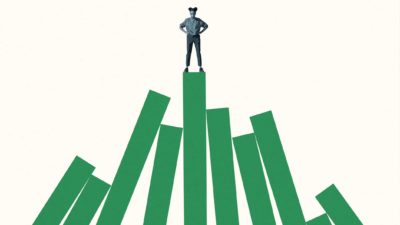As COVID-19 fears send ASX shares into a bear market, many investors have started thinking about a recession. It's easy to look to the past as a way to explain the future. However, a 2020 recession (if it happens) could be very different from those that we've seen before.
What is a recession and why could it happen?
A country is in a recession when it records two consecutive quarters of negative GDP growth. One of the reasons why ASX 200 shares have been hammered recently is because investors are starting to fear a recession in Australia. The COVID-19 pandemic has hit share valuations hard and seen global supply chain disruptions. China's temporary shutdown has also highlighted just how critical the Asian superpower is to our economy.
It's not as if we haven't seen recessions before. However, investors are understandably skittish after the 2008 Global Financial Crisis (GFC) which was one of the hardest-hitting in history. Just last week we saw the largest crash in US shares since the 1987 Black Monday crash where the market shed 22.6% in a single day.
There are some lessons to be learned from large market corrections in the past. Black Monday was a financial crisis with investors fleeing out of a perceived bubble in share price valuations. That has some similarities to this year where the S&P/ASX 200 Index (ASX: XJO) hit new record highs in January.
In the 2008 recession, the downfall of Lehman Brothers was a big shock to the global financial system. The unravelling of sub-prime mortgage lending in the USA had a knock-on effect around the world. According to some reports, Macquarie Group Ltd (ASX: MQG) was mere hours from collapse before a government bail-out.
What could a 2020 recession mean for ASX 200 shares?
Having said all of that, now is not the time to panic as an investor. COVID-19 is still an unknown quantity and no one knows what the economic or public health fallout will be. I've found that it's best to try and mitigate your own psychology when investing. Our own personal biases can get in the way of rational investment decisions of whether to buy and sell ASX shares.
While we may see a 2020 recession, we also may not. If you are looking to the past for answers, the reality is that times have changed. The role of China in the global economy is not what it was in 1987. Similarly, this recession would likely be due to supply shocks from China rather than poor lending from the banks.
I think I'll be sitting tight and waiting for the volatility to subside. However, if there's a chance to buy some cheap ASX shares on the way, I'll be taking that opportunity with both hands.








